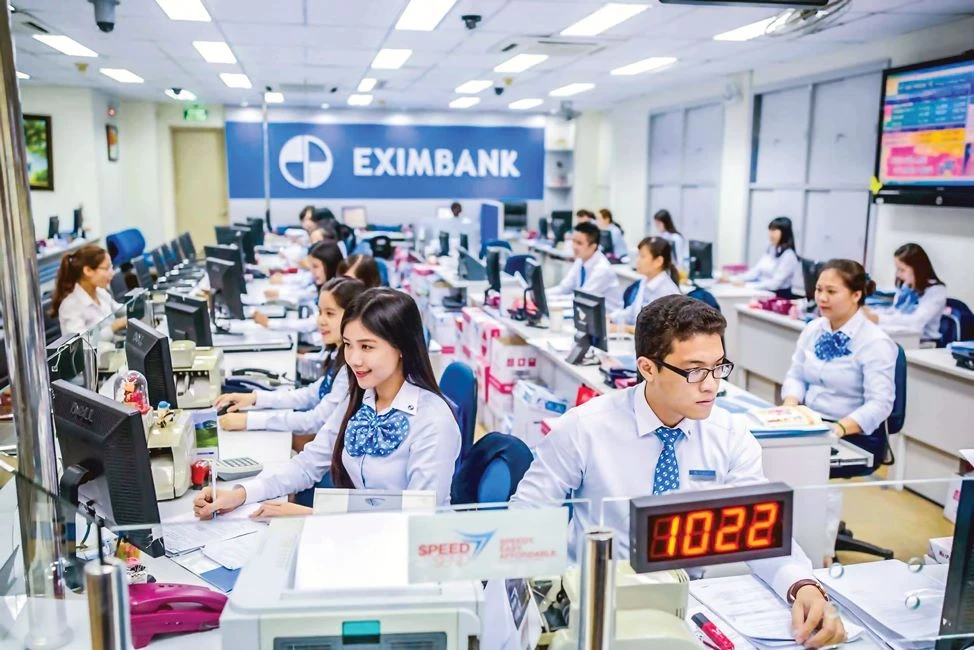
Leading in bank stock
EIB banking stock saw the highest increase in the first six months. The stock price had rocketed 35%, from VND 14,000/share to VND 18,000/share. Notably, the surge in share price of EIB was higher than the increase of share price of the leading bank, VCB (+30%).
The increase in share price of VCB was driven by good operating results of first six months. VCB has for the first time posted profits above VND 10,000bn. The bank profits before tax reached VND 11,280bn, an increase of 40.7% YoY and completed 35% of its full year target.
EIB stock price has even nearly reached VND 19,000/share. This is the highest price of EIB since the time this stock started to list on the stock exchange in October 2009. EIB was one of the leading banks in Vietnam with a chartered capital of VND 8,800bn, lending of VND 35,000bn and deposits of VND 45,500bn in October 2009. EIB at that time ranked number three in terms of chartered capital, behind Vietinbank (CTG) and Vietcombank (VCB).
However, EIB has lost its position with the strong rise of other banks. In Q4/2014, EIB surprised the market by first posting a loss of VND 678bn given the five-fold increase in its provisioning cost. This loss faded away all profits that EIB earned in the first nine months of 2014 and the bank closed the year 2014 with a tidy profit of VND 56bn.
In 2015, EIB fell into trouble that was created by infighting between different members of the Board of Directors (BOD). In 2016, the share price fell to VND 9,000/share. Especially, in 2018, EIB reputation was destroyed when a staff working at the bank appropriated the assets of some clients and ran away.
Conflict still continues
Until now, the troubles that were created by conflicts among members of the BOD still remain. In 2019, the bank could not even organize the Annual General Meeting (AGM), and cancelled on two occasions because of these on-going conflicts. Since March, EIB has changed its Chairman four times. The last person to join, Cao Xuan Ninh, who sat as Chairman for a very short time, has now just resigned.
In his resignation letter, Cao Xuan Ninh said, “as the person who was appointed by the State Bank of Vietnam to join the BOD of EIB, I have tried my best to balance the benefits of different members of the BOD. When accepting to be the Chairman of EIB, I put in great effort to help consolidate the bank situation. However, I recognize that the conflicts between different groups of shareholders will continue and cannot be resolved. Hence, I propose the BOD to allow me to resign from the position of Chairman of EIB”.
Investors acquiring EIB shares to control bank
Coming back to the surge in share price of EIB at the beginning of 2019, if we think this surge is derived by good operating results, it will not be reasonable. Currently, the bank is still neck deep in difficulties which have been created over previous years.
According to the financial statements of Q1/2019, EIB profits before tax reached VND 350bn, a decrease of 37.5% YoY, which were driven by decline in earnings from investments. In Q1/2018, EIB had a windfall of VND 500bn from the divestment of Sacombank (STB). Furthermore, the foreign exchange trading result was also worse when its profits only reached VND 23bn, a fall of 60% YoY. The Non-Performing Loan (NPL) at the end of March 2019 was VND 1,895bn, a drop of VND 25bn, but the NPL ratio increased from 1.85% to 1.88% as the result of the fall in total outstanding loans in Q1/2019.
So how has the stock price rocketed significantly? Was it the result of share acquiring activities? Since the beginning of 2019, about 230mn shares have been traded via put-through door with the total trading value amounting to VND 4,145bn. In which, many block deals with value of thousands of billion dongs were done in March and April.
These big transactions may lead to change in ownership of different groups of shareholders and will decide the new owners of this bank in coming times. As investors acquire more shares to control the bank, they are willing to pay a higher price and this is why the share price of EIB has been getting higher continuously.
Up to now, the market does not know who is the real person behind these huge transactions as the trading amount is below 5% of the chartered capital, the threshold that the law requires for clarification.
Currently, some of the biggest shareholders of EIB include Sumitomo Mitsui Banking Corp of Japan (15%), VOF Investment Limited (4.97%), Vietcombank (4.82%), ACB Securities (3.93%), SJC (2.07%) and Luong Thi Cam Tu (1.12%).




















